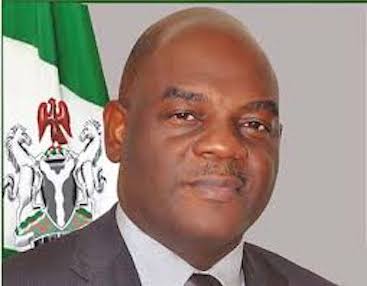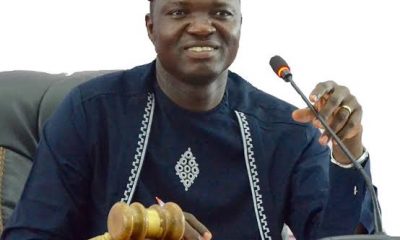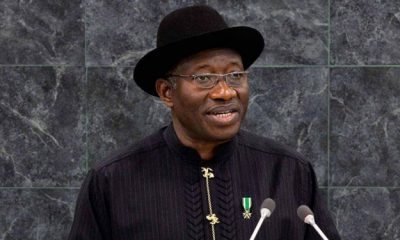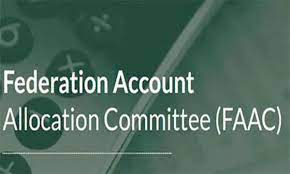Education
TETFund Can’t Fund Private Universities – Imam
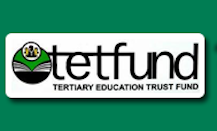
From Alfred Babs, Ilorin
The management of the Tertiary Education Trust Fund (TETFund) has ruled out the possibility of extending its funding interventions in public tertiary institutions in the country to private institutions.
Chairman of the Board of Trustees of TETFund, Alhaji Kashim Imam said that the agency has no mandate funding private institutions, which are established to make money for their owners.
Proprietors and Vice Chancellors of private universities in the country have been making appeals to the Federal Government to include their institutions among those that would benefit from TETFund grants and projects, arguing that since TETFund derives its fund from the two percent education tax, as they are also assisting the government in solving the educational challenges in the country.
Speaking with newsmen after an assessment tour of TETFund projects at the University of Ilorin during the one day TETFUND/FIRS 2020 joint Interactive Forum, TETFund BoT Chairman said that organisation was determined to prove that public agencies can actually work and do so with integrity.
He added: “TETFund is doing absolutely nothing to capture private tertiary institutions in our scheme of things. It is enough that we are impacting on public tertiary institutions. At the moment we have more than 226 state and federal universities, polytechnics and colleges of education that we are funding.
“We want to fund them to the extent that they can compete and even do better than the private universities. This is our objective. We have no business funding private tertiary institutions. I don’t subscribe to it. I don’t support it and I will not be a party to it.
“It is just enough for us to impact on the public tertiary Institutions owned by the state and federal governments. This covers Universities, Polytechnics and Colleges of Education. Private universities are established by private investors to make money. So it is not our responsibility to fund private universities.
“The 226 tertiary institutions accessing TETFund funds are very significant numbers. The institutions are evenly spread across all the six geo-political zones of the country. Not only that we fund all these institutions equally regardless of whether they are owned by the state or federal governments and we will do more.”
The Vice Chancellor of the University of Ilorin, Prof Sulyman AbdulKareem expressed happiness to TEDFUND for its interventions in the institution.
“I feel good because there is nothing like showing people the help they have done to you. This university has benefitted enough over the years, from TETFund. Like I said if you take the intervention of TETFund from our campus we have not much to say. We thank God for them and we pray that they will do more for us,” he stated.
Education
FG Reconstitutes Committee to Renegotiate 2009 University Agreements

The Federal Government has re-established a seven-member renegotiation committee to address the 2009 agreements with university-based unions.Minister of Education, Prof. Tahir Mamman, at the committee’s inauguration in Abuja on Monday, gave them a three-month deadline to conclude negotiations.
The committee brings together representatives from the Academic Staff Union of Universities (ASUU) and Senior Staff Association of Nigerian Universities (SSANU). Others are Non-Academic Staff of Educational and Associated Institutions (NASU), and the National Association of Academic Technologists (NAAT).Mamman stated that President Bola Tinubu’s government aimed to improve the education system and maintain peace on campuses.He noted that renegotiations began in 2017 but were delayed due to unforeseen circumstances.He said that the previous committee, led by Prof. Nimi Briggs, produced a draft report covering significant areas.The minister urged the reconstituted committee to work diligently and produce realistic agreements addressing the challenges facing the Nigerian University System (NUS).Committee Chairman, Dr Yayale Ahmed, appealed to the government to support universities in achieving global competitiveness and to consider lecturers’ salaries as investments.ASUU President, Prof. Emmanuel Osodeke, thanked the government and expressed hope that the new committee would succeed where previous ones failed.He emphasised the unions’ readiness to renegotiate, provided the government worked towards a stable academic calendar.(NAN)Education
Basic Education’s new Curriculum Commences Jan. 2025 – FG

The Federal Ministry of Education has announced that the new curriculum for basic education will commence across schools in Jan. 2025.
The Minister of Education, Prof. Tahir Mamman disclosed this on Monday in Abuja, at a stakeholders meeting on the implementation of the new curriculum.
Mamman said new curriculum for senior secondary education would also commence by Sept.
2025.He said the new curriculum would address problems of learning crises and employability.
According to him, the new skills acquisition to be introduced would have multiplier effect by equipping students with 21st century skills.
“In the last one year, we have worked with stakeholders to develop a skills framework that will inject skills right from the latter part of basic education to secondary education.
“The whole idea is that, by the time children finished, they should have a minimum of two skills so that they can have a productive life,’’ he said.
The Minister said the meeting was conveyed to discuss the modality and as well tidy some aspects of the curriculum, while also giving timeline for implementation, support, monitoring and evaluation.
He said the next three months would be used for preparatory stage. including preparing teachers guide in using the curriculum.
When asked on the difference between the new scheme and the 6:3:3:4 system of education that also infused skills, he said the problem was the inability to implement the policy.
“The major justification for what we have done has been the inability to implement the 6:3:3:4 system from inception
“The minimum academic standard of 1993 shows a reason for 6:3:3:4 and the Act outlined clearly the learning trajectory of schools in Nigeria.
“It was envisaged that by the time learners finished basic education, they would have acquired skills. Unfortunately, we departed from it,’’ he said.
The Director of Curriculum, Nigerian Educational Research and Development Council (NERDC), Dr Garba Gandu, said the new curriculum would provide prerequisite skills and training for global competitiveness.
Gandu said the curriculum is competency and digital based, as it also aligned with Science, Technology, Engineering, Arts and (STEAM) methods.
The new curriculum includes 15 newly introduced trade subjects for basic education.
The subjects are, basic digital literacy such as information technology, vocational entrepreneurship skills such as building and construction, plumbing and tiling.
Others are hospitality such as hair styling, make-up and services such as construction, GSM repairs, satellite and CCTV installation and maintenance and garment making, among others. (NAN)
Education
Zamfara Gives Reasons for Disengaging 109 Contract Teachers
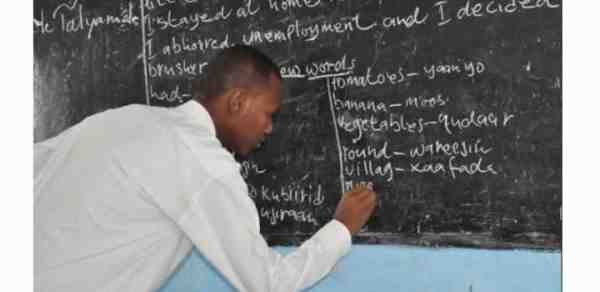
The Zamfara Teachers Service Board said the recent disengagement of the 109 contract teachers by the state government was not based on ethnic, tribal or religious reasons.
The Chairman of board, Alhaji Muhammad Aliyu-Anka, stated this while speaking to newsmen in Gusau on Friday.
The state government recently announced the dismissal of 109 contracted teachers over failure to abide by the government contract policy.
“You know, the disengagement of the teachers was not on ethnic, religious or tribal reasons, it was for the interest of the state.
“You know Gov. Dauda Lawal declared a state of emergency on the education sector of the state.
“The state government embarked on massive infrastructural investment on education across the state,” Aliyu-Anka said
He said that the provision of qualified and regular teachers was necessary to achieve the government’s policy.
He said that some of the teachers had abandoned their contracts and they were teaching at private schools while still collecting salaries from the government.
Aliyu-Anka said, “The board recommended the termination of the contracts of teachers who did not abide by the rules and regulations of the state.
“Many of the disengaged teachers were not attending schools to teach, leaving volunteers to teach the pupils.”
The chairman stated that the volunteer teachers were more qualified and they were not receiving salaries from the state government.
He said,”Considering the roles played by the volunteers in our schools, the state government plans to recruit 2000 teachers to fill the gaps by the disengaged teachers.” (NAN)

